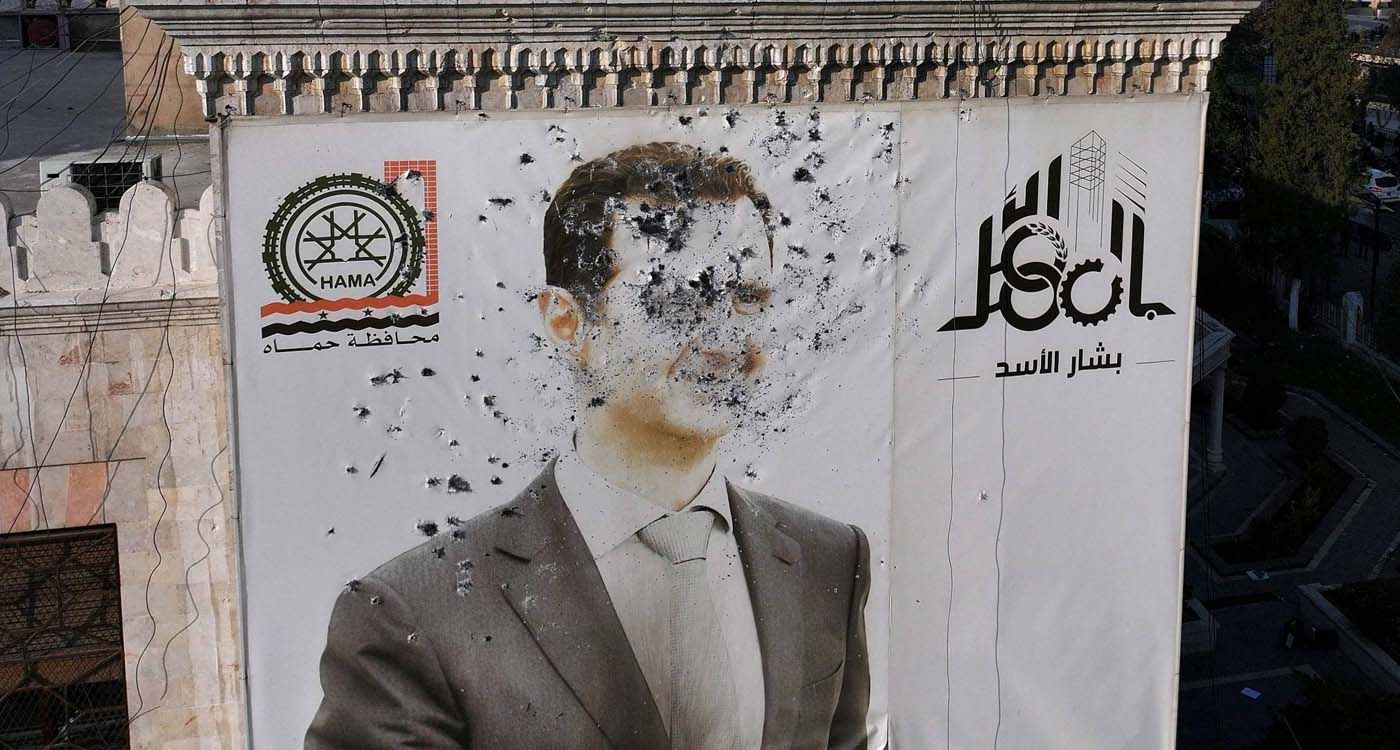- Home
- Middle East
- Syria: The Middle East’s Berlin Wall Has Fallen

©Omar Haj Kadour / AFP
It only took a few days for the "rebels" to overthrow one of the world's most tyrannical regimes—almost without a fight. At this point, it’s still difficult to understand how such a heterogeneous group, mostly armed with light weapons—at least according to the images we've seen—managed to bring down the Assad regime, which has been in power since 1971.
Syria is 18 times the size of Lebanon. In just one week, cities and villages fell, one after another, in a methodical manner.
Each time, the same pattern: A Syrian army in disarray.
How is this possible? What international opportunity made the unthinkable possible? These questions remain unanswered for now. Bashar al-Assad fled last night, presumably heading to Moscow. According to Donald Trump, Russia has abandoned his regime. In fact, the Russian military has kept a very low profile in recent days, with only a few symbolic raids and... press releases.
Was there an American-Russian deal to abandon Bashar al-Assad in exchange for a favorable resolution to the conflict in Ukraine? Many believe so.
Few will mourn the end of the Assads. One only needs to look at the images of prisoners freed from captivity, emerging like zombies after decades of neglect and torture.
For now, the rebels are faultless. Their leader, Al-Jolani, whose real name is Ahmad al-Chareh, has made a point of adopting a stance of tolerance, reassuring minorities and the military. There will be no Libyan-style scenario or manhunt—at least, that is what he has claimed in his interviews. Syrians are eager to believe him. A former jihadist leader of Al-Nosra, classified as a "terrorist movement" by the West, he now presents himself as the country's liberator, already calling for the return of refugees and free elections.
Politically speaking, the Baathist regime has been completely dismantled. Syrian Prime Minister Mohammed Al Jalali has declared his readiness to cooperate with whatever leadership the people choose—a people who, for now, are celebrating their liberation across the country.
The other major loser is Iran. The Revolutionary Guards have left the country, and their Hezbollah allies began pulling back yesterday, abandoning Homs and their stronghold in Qusayr, near the Lebanese border.
The Iranian axis, which stretched from Tehran to the Mediterranean, has been broken.
For Lebanon, the fall of the Syrian regime could bring new hope. The thorny issue of Syrian refugees and displaced persons, numbering at least 2 million, will now come to the forefront. These refugees fled, fearing for their safety in their home country. With the threat now gone, they can return home without fear. NGOs and international organizations no longer have grounds to fund their stay in Lebanon. Instead, they can continue assisting them in their own country. Since this morning, hundreds of vehicles have been seen at the border posts between the two countries, carrying the first wave of returnees.
Hezbollah, defeated by Israel, has just lost its access to arms supplies and will be unable to rebuild its military arsenal. Its leaders will have to accept the reality: the "axis of resistance" is finished. The only way for the Iran-backed militia to survive is to reinvent itself as a political faction representing a segment of Lebanon’s Shia population. The Lebanese army is the sole legitimate force. Once Iranian influence is removed, the Lebanese will be able to focus on rebuilding their country and state. Unless, as is often the case in the Arab world, Syria turns over time into a vast, chaotic battleground where numerous factions fight, reigniting instability across the region. But for now, that is not the case.
Last question, and not the least important: Is the Iranian regime next on the list? It seems logical. Twice already, the Iranian people have tried to revolt. Each time, the protests were brutally suppressed. But this time, the situation is different. The mullahs have been facing one blow after another for months. Their military has exposed its vulnerabilities, especially during the Israeli strike on the country’s ballistic facilities. It would only take a spark for the Iranian people to send their mullahs back to the Middle Ages from which they sprang. The fire smolders beneath the ashes.
Read more




Comments